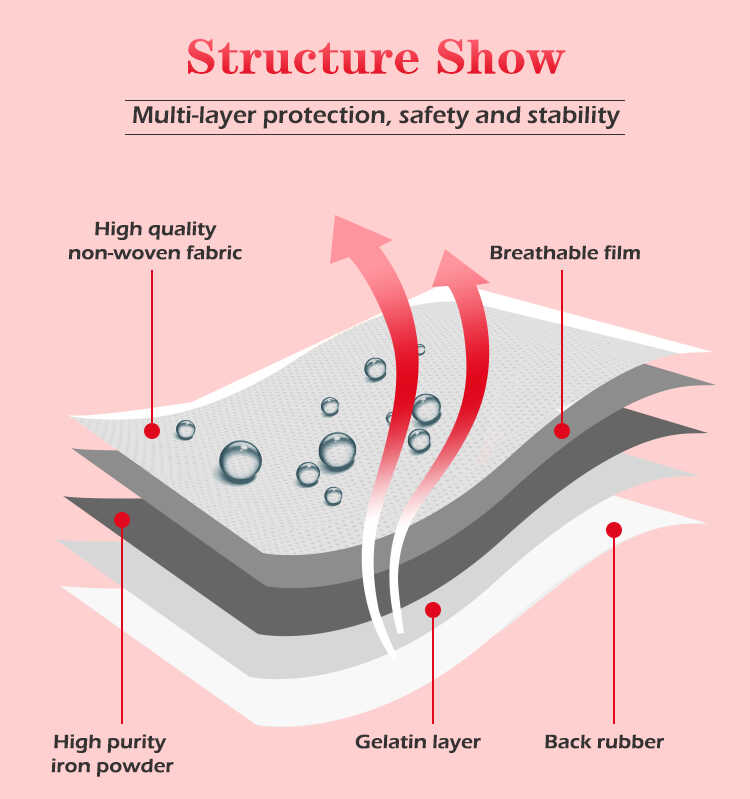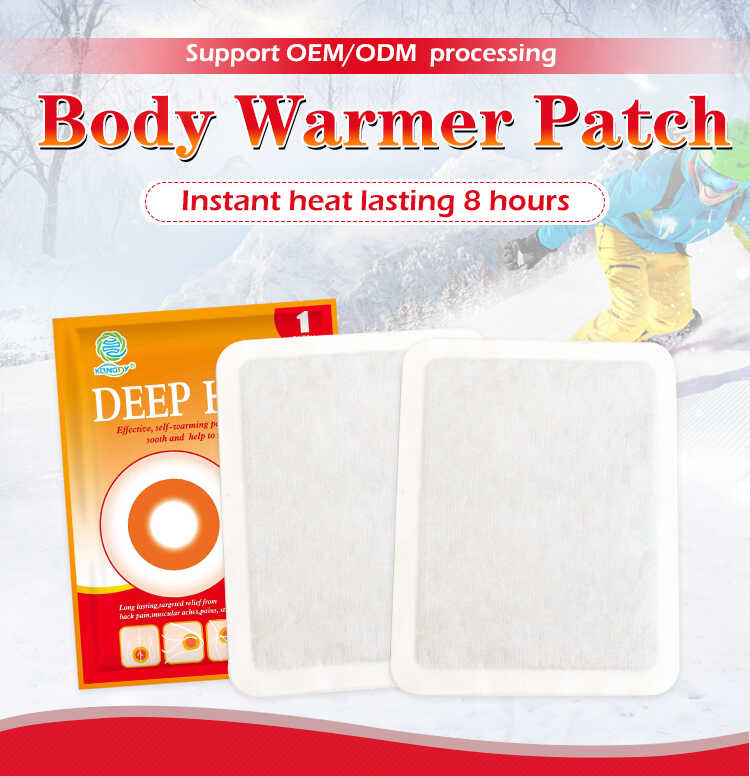Custom vs. Private Label Period Heating Pads: Which Solution Best Fits Your Business Strategy?
As the global demand for menstrual wellness products continues to rise, Period Heating Pads have become a must-have item for women seeking natural relief from menstrual discomfort. Whether you’re a startup entering the feminine care market or an established brand expanding your product line, one crucial decision stands before you:
Should you choose Custom Period Heating Pads or Private Label Period Heating Pads for your business strategy?
Both models offer unique advantages — but the right choice depends on your brand goals, target audience, and long-term vision. In this article, we’ll explore the key differences, benefits, and challenges of each, helping you decide which manufacturing solution best supports your brand’s success in partnership with a professional Period Heating Pad OEM or Period Heating Pad Manufacturer.

1. Understanding the Basics: OEM, Custom, and Private Label Explained
Before comparing the two models, it’s important to understand the terms commonly used in the industry.
OEM (Original Equipment Manufacturer)
A Period Heating Pad OEM is a company that develops and produces heating pads for other brands. OEMs handle product design, formulation, material sourcing, and manufacturing — allowing brands to focus on marketing, distribution, and customer experience.
Custom Period Heating Pad
A Custom Period Heating Pad is a product developed according to your brand’s specific requirements. This includes customizing ingredients, temperature duration, shape, materials, fragrance, and packaging. It’s ideal for brands that want to innovate and create a unique product identity.
Private Label Period Heating Pad
In contrast, a Private Label Period Heating Pad is a pre-developed, ready-made product offered by the manufacturer that can be branded with your logo, design, and packaging. It’s a faster and more cost-effective route to market, perfect for brands looking to expand their catalog quickly.
Both solutions are widely available from experienced Period Heating Pad Manufacturers and Period Heating Pad Suppliers, but they serve different business objectives.
2. The Case for Custom Period Heating Pads
Creating a Custom Period Heating Pad means designing a product from the ground up with the help of a professional Period Heating Pad OEM. This process allows full creative and technical control — from formulation and performance to branding and user experience.
Key Benefits of Custom Period Heating Pads
a. Full Product Differentiation
A custom approach enables you to design a product that’s truly unique. You can choose specific materials, heat duration, herbal infusions (such as lavender, mugwort, or ginger), and packaging style to match your brand identity.
This level of customization helps your brand stand out in a competitive market and attract loyal customers looking for something distinct.
b. Brand Exclusivity
Since your product formula and design are unique, competitors can’t easily replicate it. This exclusivity builds long-term brand equity and positions your product as a market leader rather than a follower.
c. Flexibility in Innovation
By working closely with a Period Heating Pad Manufacturer that has advanced R&D capabilities, you can continuously innovate — adding new features like smart temperature control, eco-friendly materials, or longer heat duration.
d. Control Over Quality and Safety
Custom products are made to your specifications, allowing more control over raw material sourcing, testing, and compliance. A trusted Period Heating Pad Supplier ensures your product meets international standards such as ISO, CE, or FDA.
Challenges of Custom Period Heating Pads
While customization offers maximum flexibility, it also comes with higher initial investment and longer development time. Creating a new product formula, testing its safety, and obtaining certifications require close coordination with your Period Heating Pad OEM. Therefore, this model is ideal for brands with established market presence or long-term growth plans.
3. The Case for Private Label Period Heating Pads
Private Label Period Heating Pads provide a faster, easier way to enter the market. In this model, the Period Heating Pad Manufacturer already has proven, high-quality formulations ready for production. You simply add your logo, packaging, and brand identity — and the product is ready to sell.
Key Benefits of Private Label Period Heating Pads
a. Fast Time-to-Market
Since the manufacturer already has tested and approved formulas, you can launch your product within weeks instead of months. This is ideal for businesses that want to respond quickly to market trends.
b. Lower Initial Investment
Developing a new formula from scratch can be expensive. Private labeling eliminates R&D costs, making it an affordable option for startups and small businesses.
c. Proven Product Performance
Private label products are typically based on formulas that have already been tested for quality and customer satisfaction. This reduces risk and ensures consistent results.
d. Scalable and Flexible Production
A reputable Period Heating Pad OEM can offer flexible order quantities and adjust production volume as your brand grows. This scalability allows smooth business expansion without heavy financial pressure.
e. Focus on Branding and Marketing
Without the burden of R&D, your team can focus on building brand awareness, marketing strategies, and customer relationships — key drivers of business success.
Challenges of Private Label Period Heating Pads
While private labeling is efficient, it offers limited flexibility in product design and features. Since multiple brands may sell similar formulas, your differentiation depends heavily on marketing and packaging. However, by partnering with a creative Period Heating Pad Supplier, you can still achieve a strong brand presence through unique branding and customer engagement.
4. Comparing Custom vs. Private Label: Which Fits Your Business Strategy?
To help you decide, let’s compare the two options across key business factors:
| Category | Custom Period Heating Pad | Private Label Period Heating Pad |
|---|---|---|
| Product Design | Fully customizable (formulation, ingredients, temperature, packaging) | Limited customization (mainly branding and packaging) |
| Development Time | Longer (3–6 months) | Short (2–6 weeks) |
| Investment Level | Higher (due to R&D and testing) | Lower (no R&D cost) |
| Exclusivity | 100% exclusive to your brand | May be shared with other brands |
| Market Speed | Slower but more strategic | Faster but less differentiated |
| Best For | Established brands, premium markets, long-term strategy | Startups, fast launches, budget-conscious businesses |
5. The Role of the Period Heating Pad OEM in Both Models
Whether you choose Custom or Private Label Period Heating Pads, your success depends heavily on your Period Heating Pad OEM partner. A reliable OEM ensures that every product meets safety standards, performance expectations, and consumer satisfaction.
How an OEM Supports Your Brand:
R&D and formulation expertise to design or improve products.
Strict quality control and batch testing.
Compliance with certifications like ISO13485, CE, or FDA.
Efficient supply chain management for global delivery.
Brand support including packaging design and private labeling.
Working with a reputable Period Heating Pad Manufacturer means you’re not just buying products — you’re investing in a long-term partnership that helps your brand grow sustainably.
6. Choosing Between Custom and Private Label: Strategic Considerations
a. Your Brand Vision
If your brand aims to establish itself as an innovator with unique wellness solutions, Custom Period Heating Pads align with your vision. But if your goal is to quickly expand your portfolio or test market potential, Private Label Period Heating Pads are the smarter choice.
b. Budget and Resources
Custom products require more investment in R&D, testing, and time. If your budget allows, it’s a long-term investment with high rewards. For startups or small businesses, private label models offer a risk-free entry into the market.
c. Time-to-Market Pressure
If you need to launch quickly — for example, during seasonal campaigns or promotional events — private label options from an experienced Period Heating Pad Supplier are ideal.
d. Target Market
Luxury and health-focused consumers may value innovation and exclusivity, favoring custom products. Mass-market audiences, however, prioritize affordability and availability, making private label solutions more practical.
e. Long-Term Scalability
Brands that plan to expand globally should eventually move toward custom development. This ensures ownership of formulas, branding control, and flexibility for international compliance.
7. How to Select the Right Period Heating Pad Manufacturer or OEM
Regardless of your chosen model, selecting the right manufacturing partner is crucial. Consider these factors:
Experience and Reputation:
Choose a Period Heating Pad Manufacturer with proven expertise in women’s health and transdermal heating technologies.Certifications and Compliance:
Ensure your Period Heating Pad OEM meets international quality standards (CE, ISO, FDA).Customization Capability:
If you plan to develop Custom Period Heating Pads, confirm the OEM has R&D facilities and a skilled formulation team.Private Label Options:
Verify if the OEM offers ready-made Private Label Period Heating Pads with flexible branding and packaging support.Quality Control and Testing:
Request documentation of quality tests and material safety certifications.Production Capacity and Scalability:
Partner with a Period Heating Pad Supplier that can scale production as your sales grow.Communication and Support:
Effective communication ensures smoother development, faster approval, and long-term collaboration.
8. The Ideal Growth Path: Start with Private Label, Grow into Custom
Many successful brands use a hybrid strategy: starting with Private Label Period Heating Pads to test market demand, then transitioning to Custom Period Heating Pads as their brand grows.
This strategy allows you to:
Enter the market quickly and build customer trust.
Gather feedback from real users.
Use sales insights to design a truly unique, custom product later.
By working with a flexible Period Heating Pad OEM, you can easily scale from private label to custom manufacturing within the same partnership — ensuring consistent quality and brand evolution.
9. Conclusion
Both Custom Period Heating Pads and Private Label Period Heating Pads offer powerful pathways to business success — but the right choice depends on your strategy, goals, and resources.
If you prioritize innovation, exclusivity, and brand differentiation, Custom Period Heating Pads developed with a professional Period Heating Pad Manufacturer are your best fit.
If your goal is quick market entry, cost-efficiency, and fast scalability, Private Label Period Heating Pads from a reliable Period Heating Pad Supplier will help you grow without the heavy upfront investment.
Ultimately, partnering with a trustworthy Period Heating Pad OEM ensures product quality, compliance, and long-term collaboration — the foundation of any successful brand in the menstrual wellness market.
Related Questions and Answers
Q1: What is the main difference between Custom and Private Label Period Heating Pads?
Custom pads are designed from scratch according to your brand’s specifications, while private label pads use existing formulas branded with your logo and packaging.
Q2: Which option is better for startups?
Private Label Period Heating Pads are ideal for startups due to lower costs, minimal R&D requirements, and fast time-to-market.
Q3: Can I switch from private label to custom later?
Yes. Many brands start with private label to test the market, then move to custom solutions once they understand customer needs.
Q4: How can a Period Heating Pad OEM support my brand?
A reliable OEM provides product development, quality testing, certification compliance, and full customization or private labeling support.
Q5: What should I look for in a Period Heating Pad Manufacturer?
Check for experience, certifications, R&D strength, material safety, production scalability, and transparent communication.






